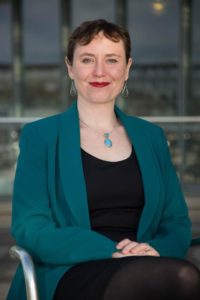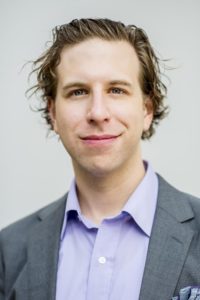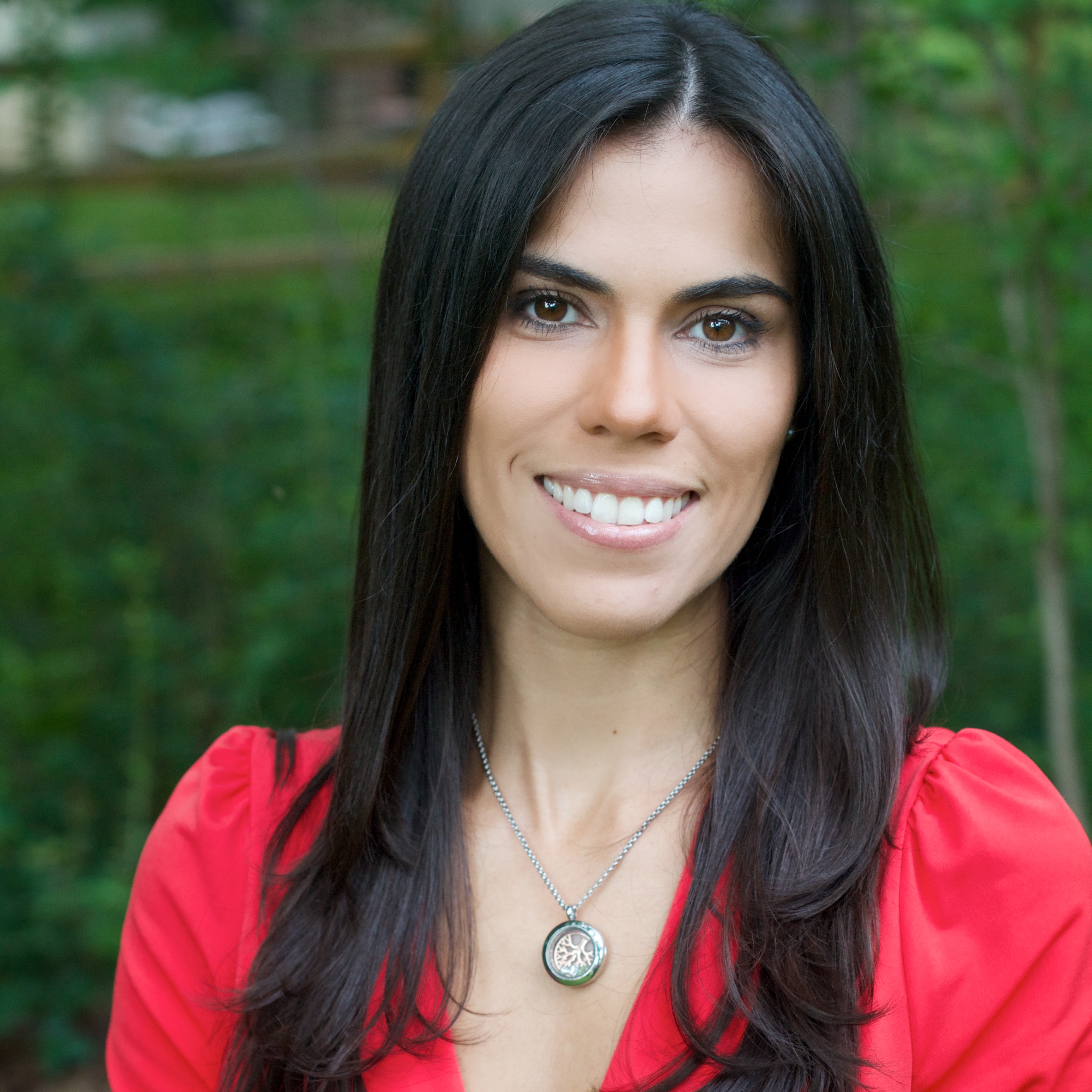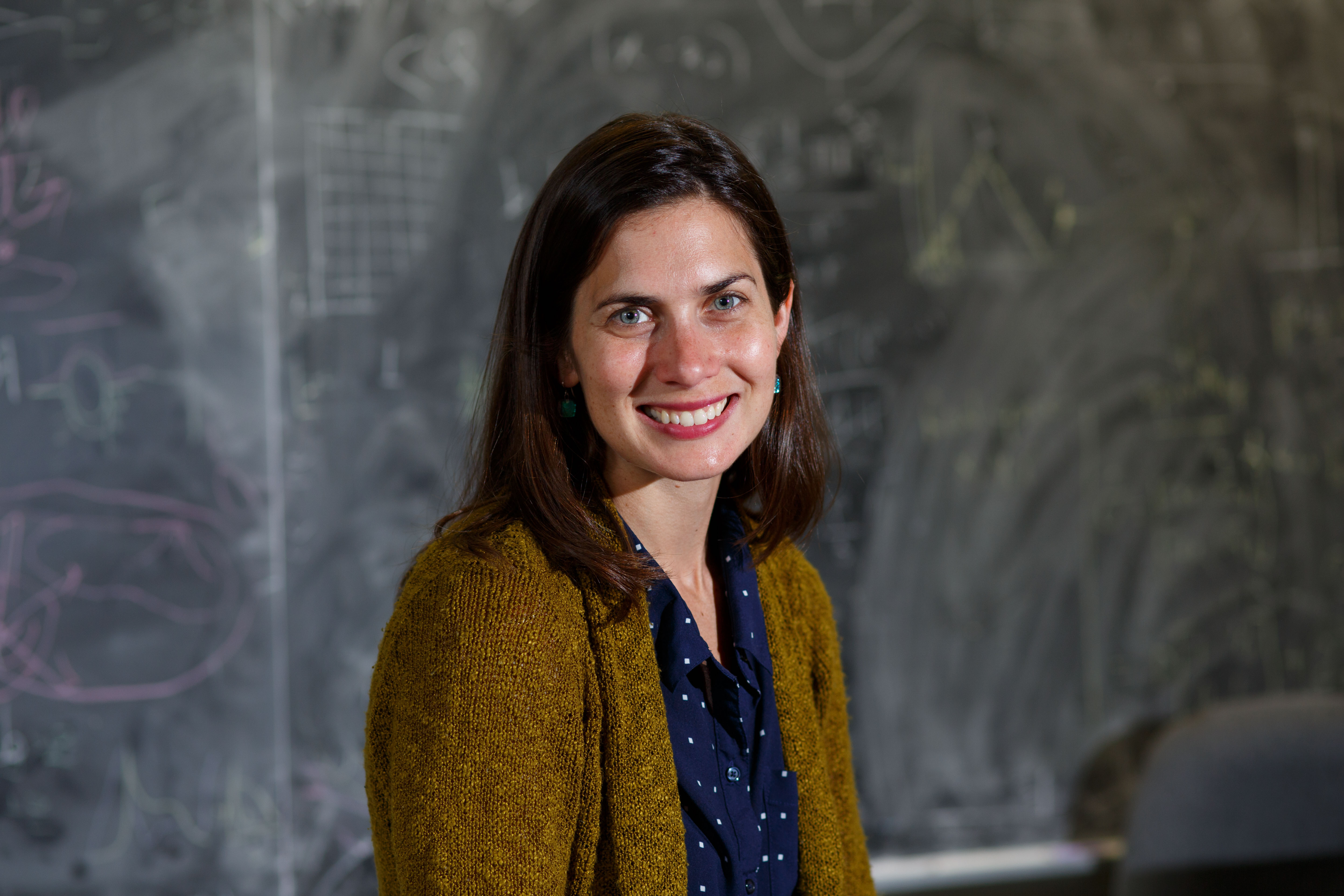Written by Clinton Parks

Photograph of Karen Thickman by Scott Manthey of ImageArts Photography
In the process of deciding what career path she would pursue, Karen Thickman, a full-time lecturer in the Department of Bioengineering at the University of Washington in Seattle, participated in many informational interviews as a postdoc at the University of Pittsburgh School of Medicine. During one such interview a staffer at a scientific journal told her that people don’t get doctorates to work nine to five jobs. Despite that flexibility it’s not always easy to find that ballyhooed work/life balance.

Photograph of Noah Smith by Dennis Wise
Thickman and her husband, Noah Smith, an associate professor at UW’s Department of Computer Science and Engineering, ascribe to author David Sedaris’ somber “four pots” tenet when considering work/life balance. The cooking pots represent family, friends, health, and work. To be successful in work you have to cut off one of the other pots. Cutting off two other pots increases that success.
Smith has found happiness by trying to keep the other three pots low, but not off. Thickman also prioritizes work, but puts more effort into family and friends than Smith. Scheduling has allowed them to enjoy the limited time they have for family, friends, and fun distractions. They also combine activities to maximize their limited spare time by having dinners with nonwork friends, taking off an extra day when traveling to visit loved ones, and watching Netflix with one another.

Photo courtesy of Saly Romero-Torres
Family is important to Saly Romero-Torres. As the founder and head of a data analysis startup called BioHyperplane, the trained analytical chemist uses her biologist sister as a consultant. When she worked at pharmaceutical giant Pfizer, she sometimes lamented the frequent travel. Those trips often took her away from her husband and young son in Berkeley Heights, N.J. Romero-Torres still travels to meet with her customers, but now she decides when and where. “I call the shots,” she says. “I can say yes; I can say no.” That flexibility allows her more time with her family.

Photograph of Anique Olivier-Mason by Heratch Ekmekjian
Family, more specifically children, can be an especially tricky issue for women trying to establish themselves in the sciences. The decision about whether to have or not have kids is a personal one. “We’ve chosen not to have kids, so my family pot is small,” Thickman says. “I know this isn’t the answer for everyone, but it is for me.” Most women who decide to have children do so during the years when scientists are in the midst of shoring up their professional credentials. And mothers in those positions in the sciences are not always treated well, according to Anique Olivier-Mason, Director of Education, Outreach and Diversity at Brandeis University’s Materials Research Science and Engineering Center in Waltham, Massachusetts.
As a mother in graduate school, Olivier-Mason knew the stereotype: “uncommitted, not ambitious and indifferent toward quality because she’s so focused on her family and kids.” Although she was proud of her children, being a mother wasn’t something she advertised in the lab. “If I needed to pump breast milk, I might have said I needed a restroom,” she says. “If I needed to leave early for a daycare pickup, I might give some other excuse instead.” Being a mother is something Olivier-Mason no longer hides although she remains vigilant about others insinuating that having kids makes her a less committed scientist. She also believes having children has necessitated her being better organized and professionally productive.
For instance, the importance of social life and hobbies may give way to family responsibilities as a person commits to a life partner and the couple has children. Research recognizes that work and personal life domains can impact one another in positive and negative ways Carlson et al. , 2000 , 2006 ; Grawitch et al.